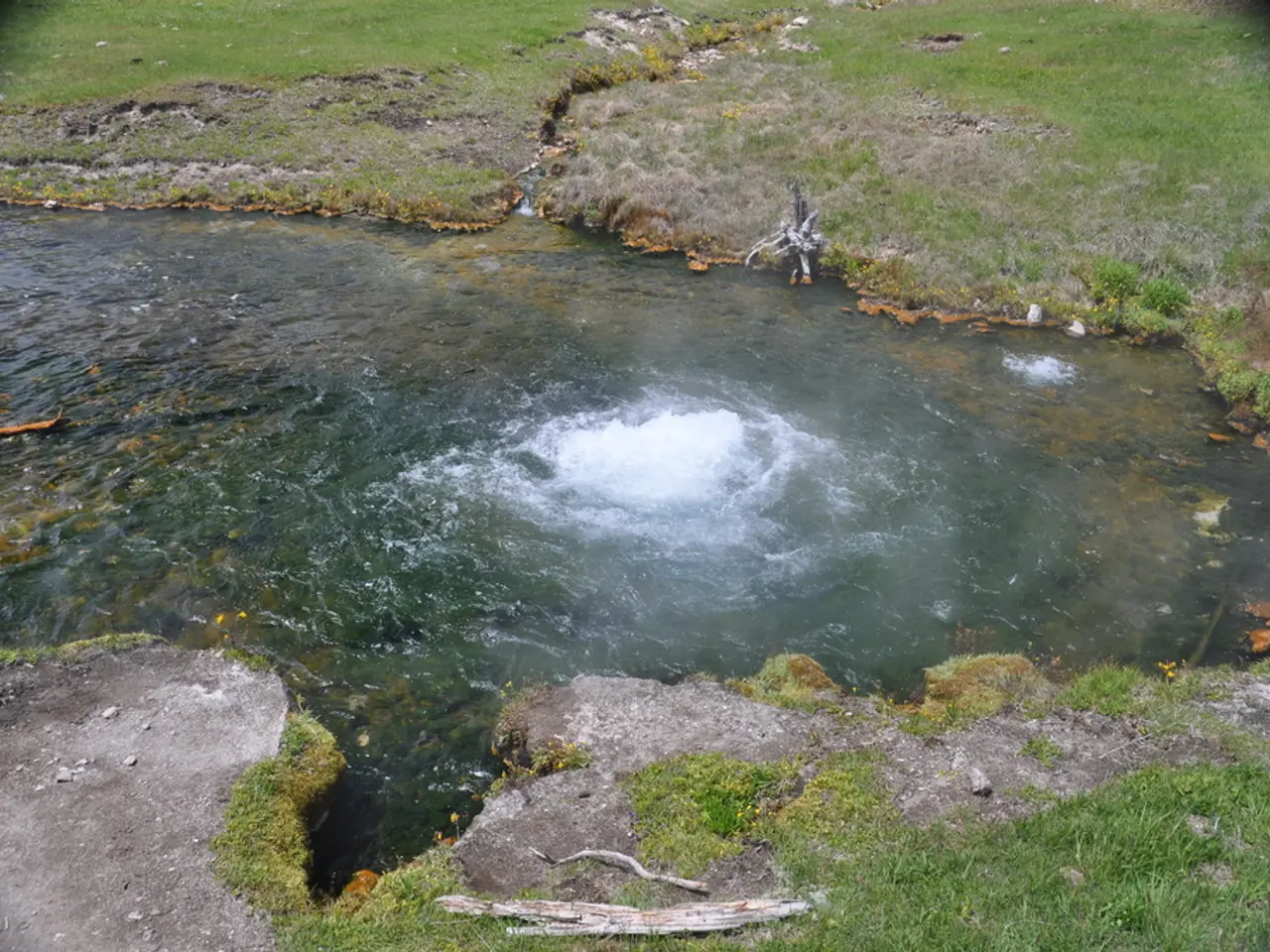Wolverine Cost, Power, and Carbon Emission Reduction Success: Achievements of Wolverine Advanced Materials in Lowering Expenses, Energy Use, and Environmental Impact
In a bid to improve energy efficiency, reduce carbon emissions, and enhance environmental practices, the Manufacturing Technology Center (MTC) in Blacksburg, Virginia, has partnered with local company Wolverine to undertake the Economy, Energy, and Environment (E3) project.
The E3 project, funded by a grant from the U.S. government, aims to address three key areas: energy usage, process flow, and pollution prevention within Wolverine's facilities. The initiative has already shown promising results, with immediate savings of $26,725 in reduced power demand, $43,622 in solvent reuse, and $26,100 in improved maintenance.
The project includes improvements in maintenance, with employees responsible for routine cleaning and performance of Preventive Maintenance (P.M.) on the equipment they run. The two-day event, conducted by the MTC, aimed to further enhance the facility's existing procedures and systems to reduce, recover, and reclaim solvent.
The MTC performed an E3 technical assessment and Lean and Green Value Steam Mapping (VSM) for Wolverine. The VSM process, a methodology for analysing the current state of a system and identifying opportunities for improvement, was instrumental in the project's success.
Wolverine, a global supplier of polymer-coated materials and custom-engineered sealing solutions, sought to improve energy and production efficiency while reducing its carbon footprint. Sheila McCartan, Vice President Corporate Quality & General Manager N.A. Operations, expressed that the E3 project provided a good opportunity to take a fresh look at energy utilization and resource conservation.
The project also aims to reuse solvent that is reclaimed, reducing solvent cost and disposal cost. Currently, solvent is used to flush coating material from processes during changeover and becomes hazardous waste with minimal reuse.
The MTC partnered with American Electric Power, a service provider of electric energy, to help in scheduling equipment during off-peak hours to reduce power demand. This strategy, combined with the other improvements, is expected to result in additional savings of $11,453 in reduced power demand, $43,622 in solvent reuse, and $60,900 in improved maintenance within one year.
Minimal Total Productive Maintenance (TPM) systems are in place for keeping all equipment in top working order, particularly at the coating lines. Equipment is marked and/or modified to make maintenance simple, easy, and safe.
The E3 project also includes strategies for better efficiencies in energy usage, process flow, and pollution prevention within Wolverine. A thorough review of plant processes was conducted to identify wastes in order to minimise wasted motion and improve process flow.
While detailed public information on the E3 project's strategies and outcomes is currently limited, the partnership between the MTC and Wolverine signifies a significant step towards sustainable manufacturing practices in the region. For more specific project insights, it is recommended to consult official releases from the Manufacturing Technology Center or Wolverine, or specific industry case studies they may have published.
- The E3 project, featuring strategies for energy usage, process flow, and pollution prevention, aims to reduce wastes within Wolverine's facilities to improve environmental practices.
- The MTC's partnership with American Electric Power will help schedule equipment during off-peak hours, reducing power demand, and thus contributing to the reduction of waste energy in the manufacturing industry.
- Apart from enhancing energy efficiency, the E3 project also encourages recycling and reusing solvents, minimizing pollution associated with solvent disposal and reducing the financial burden of solvent costs.






